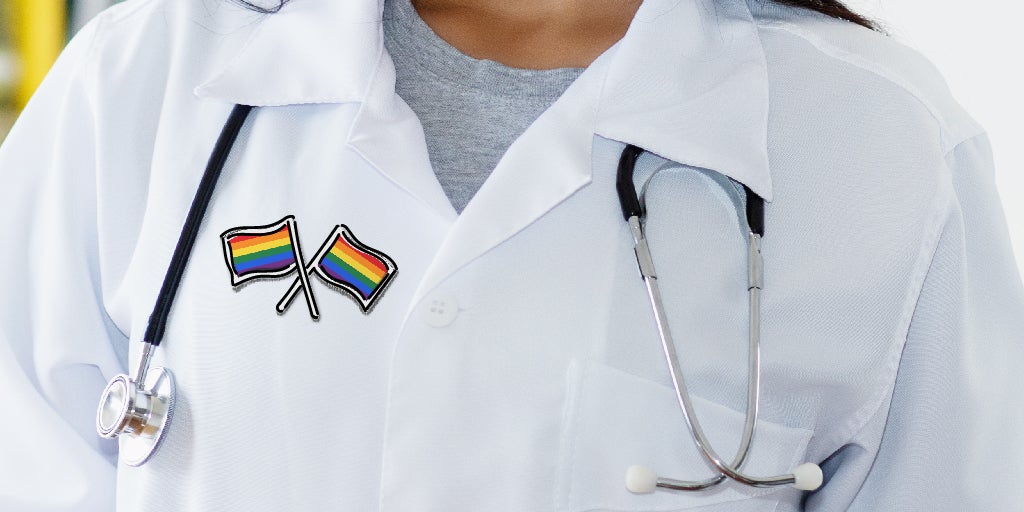As we have struggled to navigate the current crisis, we have heard the coronavirus referred to as a “great equalizer”. These claims, however, were swiftly rebuked. While the virus can indeed affect any one of us, we know that individuals with preexisting medical conditions are extremely vulnerable. And pre-existing social and economic inequalities can be just as devastating. This is especially true for Lesbian, Gay, Bisexual, Transgender/sexual, and Queer (LGBTQ+) individuals who often face debilitating discrimination.
What are the risks?
Healthcare
LGBTQ+ persons are more prone to have various types of cancers and HIV, which already puts them at high risk. This is exacerbated by a lack of knowledge of their specific healthcare needs, and barriers blocking their access to health care. In Mexico, for example, nearly 50% of LGBTQ+ patients reported that medical personnel were not adequately trained to provide care for their specific needs. In Colombia, 26% of LGBTQ+ persons reported open discrimination by a doctor, and 44% of transgender persons reported denial of medical attention. There have even been recent efforts to publicly sanction discrimination, such as permitting the refusal to treat LGBTQ+ patients as “conscientious objection”.
Loss of income
A recent report estimated that in OECD member countries LGBTQ+ persons were 7% less likely to be employed. This situation, which is reflected to some extent in the rest of the world, has worsened throughout Latin America and The Caribbean during the pandemic as LGBTQ+ persons tend to work in sectors that are most affected by the estimated 14 million jobs lost. Many LGBTQ+ persons are in service-based businesses such as bars, restaurants, and beauty salons, and trans women work informally, with as high as 95% participating in sex work.
Violence
During mandatory quarantine period, many of the LGBTQ+ persons confined in their homes are facing increased violence from family members. In Chile, 40% LGBTQ+ persons have reported verbal aggression, 38% psychological aggression, and 2.2% physical aggression. Close to half of these victims (45%) reported that mobility restrictions and social distancing have prevented them from seeking help.
What is being done?
Some noteworthy efforts have already emerged to mitigate LGBTQ+ exclusion in Latin American countries during the pandemic. The Health Ministry in Argentina issued a guidance note on treatment of transgender persons, and the Health Ministry in Peru offered recommendations to guarantee treatment and provision of antiretroviral medications to persons living with HIV. Likewise, in Argentina and El Salvador, specific hotlines have been set up in response to violence against LGBTQ+ persons.
Also in Argentina, the National Institute against Discrimination, Xenophobia and Racism (INADI), in coordination with other Ministries, has ensured the delivery of food and other basic needs to vulnerable transgender persons. Similar initiatives have been carried out by the governments, civil society and LGBTQ+ chambers of commerce in El Salvador, Paraguay and Ecuador.
What more can we do?
- Provide clear guidance to health care providers on the inclusion and treatment of LGBTQ+ persons, including those living with HIV.
- Ensure that temporary economic relief reaches LGBTQ+ individuals and households in need during and in the aftermath of the pandemic.
- Explicitly target LGBTQ+ individuals in all initiatives that are addressing the rise in domestic violence.
- Work together with civil society organizations with close ties to members of the LGBTQ+ community to help them to access resources and support, and to report abuses.
The coronavirus pandemic has challenged all of us to stop and think very seriously about the response capacity of the healthcare system and other critical sectors, and about who has the protection, support and resources they need to survive and thrive. As we find ourselves in this life or death situation, the profound effects of persistent inequalities could not be clearer. Perhaps the great equalizer, instead, will be our offering of truly inclusive responses to this pandemic that extend beyond this crisis and into a new mindset where equality is part of our DNA.


Leave a Reply